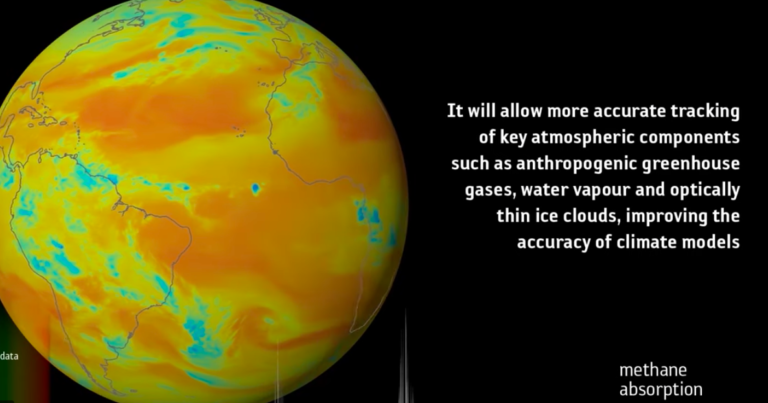A European space mission will add a crucial dataset to the study of climate change by measuring outgoing far-infrared radiation.
Known as the Far-infrared Outgoing Radiation Understanding and Monitoring mission (FORUM), the satellite will aid climatologists studying Earth’s radiation budget – the balance between incoming and outgoing radiation. When the budget is unbalanced, the Earth’s temperature can change, with consequences for the climate.
The sun is the source of most incoming radiation, while outgoing radiation is a combination of the sun’s radiation reflected back and radiation created by Earth. Much of this outgoing radiation is in the form of longer wavelengths, and of these more than half are in the far-infrared part of the electromagnetic spectrum.
The FORUM mission will be the first time this part of the spectrum has been measured from space, said Josef Aschbacher, ESA’s director of Earth-observation programs.
“FORUM will bring great benefits to climate science,” said Aschbacher. “Better understanding the complexity of our climate system and filling gaps in our knowledge is of critical importance as the consequences of climate change are far reaching, affecting all facets of society and the natural world.”
The mission, which is set for launch in 2026, will be the ninth in ESA’s Earth Explorer series of satellites. The satellites uses innovative measurement techniques to yield new insight into different aspects of Earth’s climate.



